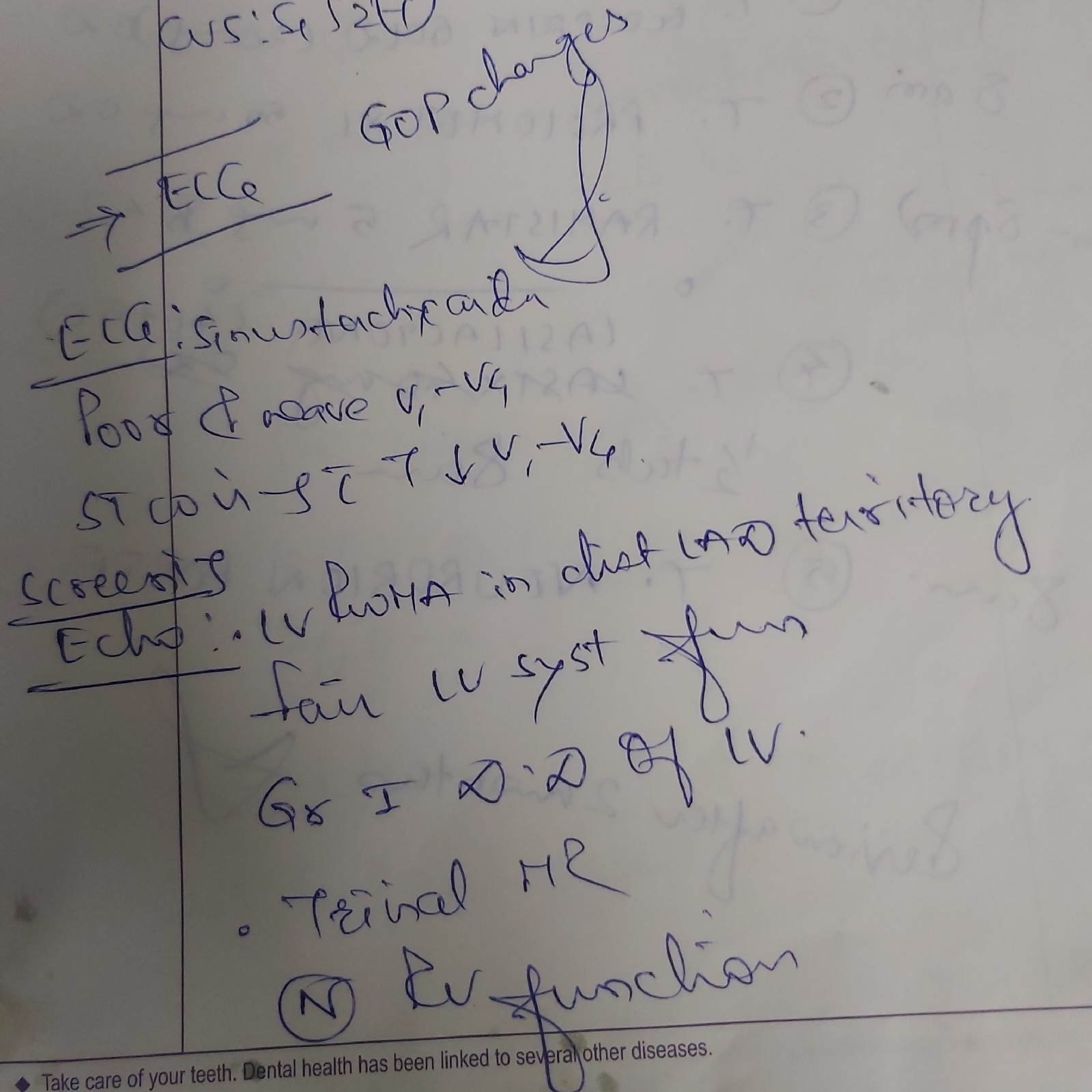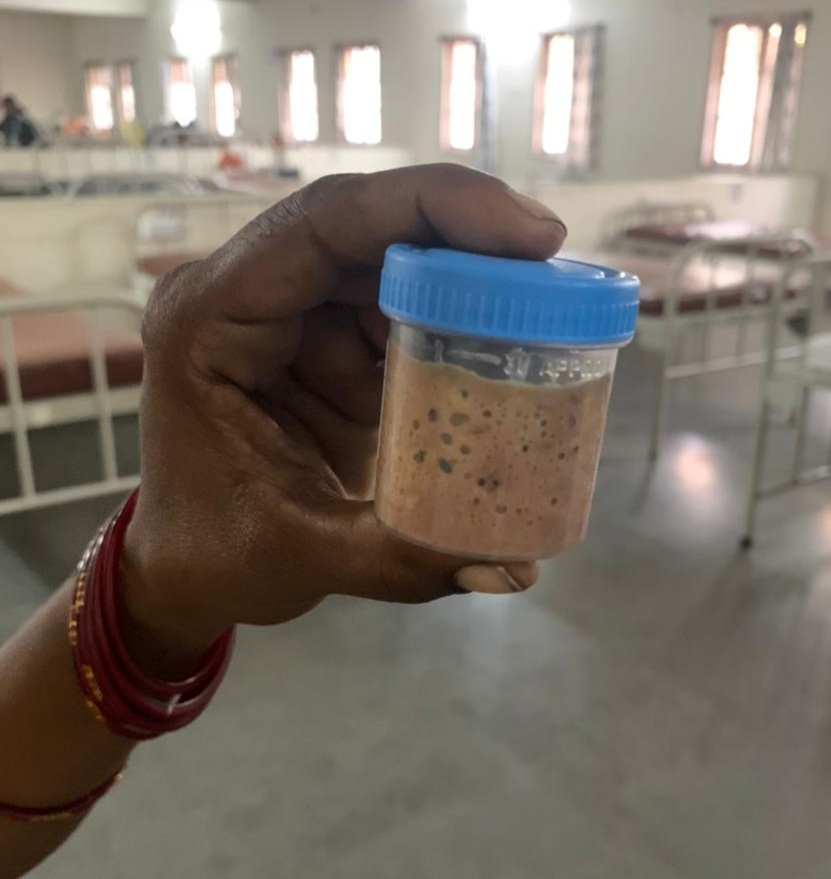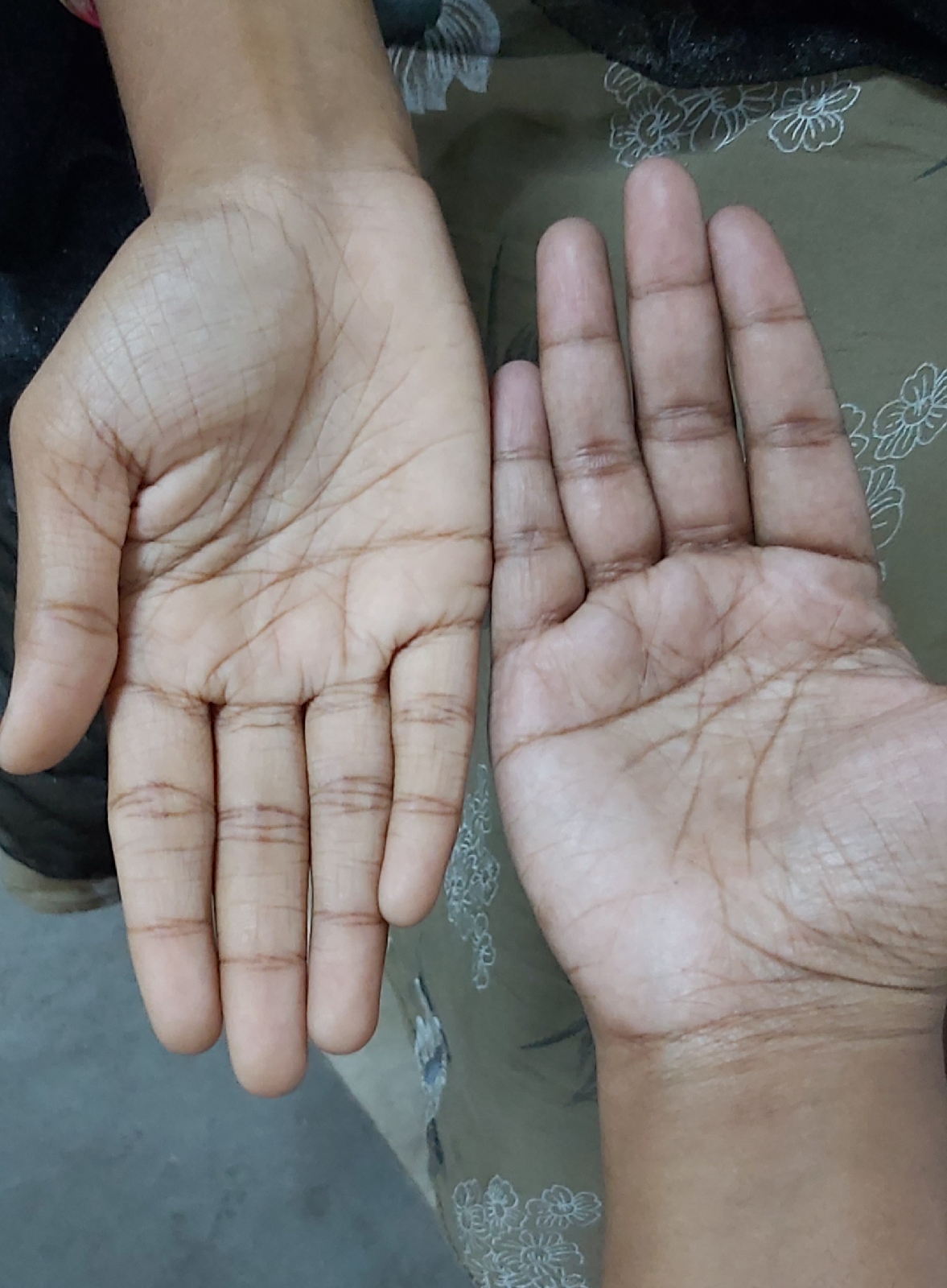60 year old male came with c/o Involuntary movement of left hand fingers since 2 yrs, Burning sensation of hand since 2 yrs, Walking difficulty, giddiness since 2 yrs
This is an online E log book to discuss our patient's de-identified health data shared after taking his/ her /guardian's signed informed consent.
Here we discuss our individual patient's problems through series of inputs from available global online community of experts with an aim to solve those patient's clinical problems with collective current best evidence based inputs.
This E log book also reflects my patient-centered online learning portfolio and your valuable inputs on the comment box is welcome.
Chief complaints:-
60 year old male right handedness, resident of gudalapalli, mason by occupation came with c/o
Involuntary movement of left hand fingers since 2 yrs (5-6 days gap)
Swelling and Burning sensation of hand since 2 yrs,
?Walking difficulty, giddiness since 2 yrs
History of present illness:-
Inability to grip objects with left hand while at work(sudden in onset), static(non progressive weakness)
Weakness:- Holding weight on left upper limb(can't lift bucket, can't divide chapati/buttoning or unbuttoning)
Proximal muscles normal- reaching overhead objects
Tremors of left hand fingers-
Constant at rest(resting tremors),
increased on reaching an object(kinetic tremors), on outstretched hand(postural tremors).
paraesthesia present in left upper limb (burning , pricking type2, itching),
No sweating, no diurnal variation, no loss of consciousness, no seizures, no speech disturbances, no loss of smell perception, visual acuity normal, cranial nerves intact.
Able to feel clothes,
bowel Bladder normal,
Past history:-
No similar complaints in the past
H/o CAD, ANTERIOR WALL MI on 4th November 2017,and underwent CAG
Nov 19,2020
2d echo:-
doppler:-Pt is k/C/o Hypertensive since 2 yrs and is on regular medication
TAB CLINIDIPINE 10MG
TAB ECOSPRIN,
TAB METOPROLOL 50mg
Personal history:-
He consumes mixed diet, non alocoholic ,non smoker, bowel and Bladder movements regular.
no drug and Allergic history,
On Examination:-
Pt is conscious, coherent, cooperative
Moderately built, Moderately nourished
There are signs of clubbing in fingers, and koilonychia in toes
No signs of pallor, icterus, cyanosis, lymphadenopthy ,pedal edema
Bp:-110/80mmhg on left upper limb and 210/150 mm hg on right upper limb ,discrepancy in BP of both upperlimbs
Pr: 88bpm, CVS: s1s2+,
RS:- BAE+, NVBS
ANS:- no sweating ,
CNS:- HMF- Normal,
CN- normal
Sensory system intact
Motor system:-
Bulk- Normal
Measurement:wasting of left upper limb
R L
U/l above 29cm 26cm
U/l below26.5cm 23.5cm
Tone:- R L
UL N increased
LL N N
Power:- R L
Deltoid 5/5 5/5
Supraspinatus 5/5 5/5
Infraspinatus 5/5 5/5
Rhomboidus 5/5 4/5
Latissimus dorsi 5/5 5/5
Pectoralis major 5/5 4/5
Biceps 5/5 5/5
Brachioradialis 5/5 5/5
Triceps 5/5 5/5
ECR 5/5 5/5
ECU 5/5 4/5
ED 5/5 4/5
FCR 5/5 4/5
FCU 5/5 4/5
ABD POLLICIS 5/5 4/5
EPB 5/5 4/5
EPL 5/5 4/5
OPP POLLICIS 5/5 5/5
APB 5/5 4/5
LUMBRICALS 5/5 4/5
FDP 5/5 4/5
Investigations:-
Complete urine examination:-on 3rd april,21
T3,T4, TSH ON 6/4/2021
Diagnosis:-
K/C/O CVA B/L MCA TERRITORY INFART +
CAD + HTN WITH
KINETIC TREMORS under evaluation
Treatment:-
Tab clinidipine 10mg ×hs
Tab met-xl 50mg/PO/OD
Tab ecosprin-av 75/20 mg/OD
Tab pregabalin 75mg/hs
Tab mvt /po/od
Tab tetrabenazine 12.5mg/od
Bp/pr monitoring 2nd hrly
Guided by
Dr. Sai charan (thesis - motor weakness)
Dr . Pradeep
Dr A. Vaishnavi
Dr. K . Vaishnavi
Dr. Rashmitha rao
Discussion by Dr Rashmitha Gm Pg 2nd yr:-
Hirayama disease, a rare neurological disease, is characterized by insidious unilateral or bilateral muscular atrophy and weakness of the forearms and hands, without sensory or pyramidal signs.[1] The disease primarily affects men in the second to third decades. The disease progresses initially, but spontaneous arrest is known to follow several years after the onset, unlike motor neuron disease with which it is commonly confused.[2] Hirayama disease is characterized by focal ischemic changes in the anterior horn cells of the lower cervical cord that result in amyotrophy, which is usually unilateral but may also be bilateral. We describe the characteristic findings of flexion magnetic resonance imaging (MRI) suggestive of Hirayama disease.
https://www.ncbi.nlm.nih.gov/pmc/articles/PMC3137836/
The points favouring towards hirayama is : wasting and weakness of distal muscles of hand without sensory and pyramidal tract involvement.
Against : Age of presentation is usually 2nd and 3rd decade
A thesis on this disease from Dr Rojas current college http://repository-tnmgrmu.ac.in/12491/
Other differentials with a video of the polyminimyoclonus https://www.annalsofian.org/article.asp?issn=0972-2327;year=2015;volume=18;issue=2;spage=249;epage=251;aulast=Bhat
























